What is the Gas App & Is It Safe for Kids?
Showing kids the dangers of basing self-esteem on what other people think
MAY 10, 2023
What is the Gas App & Is It Safe for Kids?
Showing kids the dangers of basing self-esteem on what other people think
The Gas app has risen to immense popularity as well as controversy since its launch in August of 2022. Parents can learn why teens love this app, and if it’s safe for kids.
What is the Gas App?
The Gas app is a polling platform popular among tweens and teens that encourages the ranking of peers. In teen slang, to “gas someone up” can mean to pay them a compliment.
While the app has the potential to uplift its users, an emphasis on the culture of ranking along with the subsequent enticement to earn a higher social status than others can be harmful to teens.
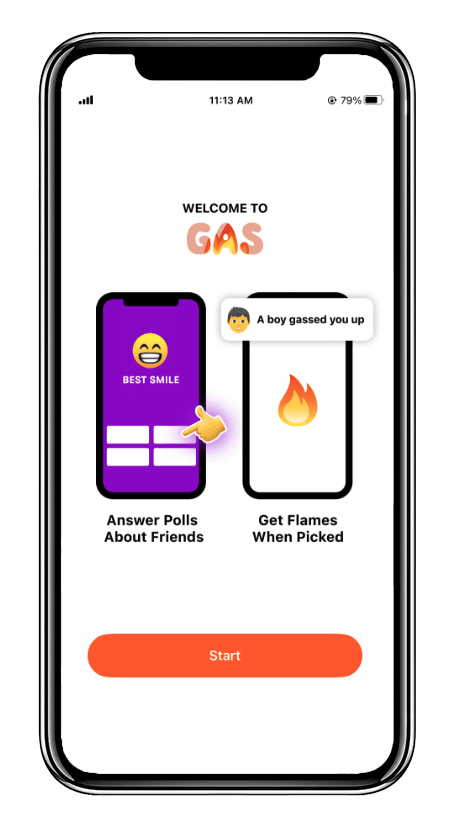
Marketed to High Schoolers
Gas is geared toward high school-aged kids. When new users open the app, they’re greeted with an age verification screen. Despite the app’s required user age to be over 12, a user younger than can easily join as there is no real age verification.
The user is then prompted (and required, for full app functionality) to allow the app to track their location and pull information about all of their contacts. Users are asked to disclose their high school name, their gender (girl, boy, or non-binary), and their grade.
Law enforcement warns parents to avoid disclosing their child’s school as predators use this information to locate and groom victims.
How it Works
Randomly generated polls appear for teens to vote on, auto-populated with names from their contact list. In addition, the app recognizes individuals in the area, regardless of whether or not they’re in a user’s contact list. These individuals can be added as friends and subsequently voted for.
Poll questions may be:
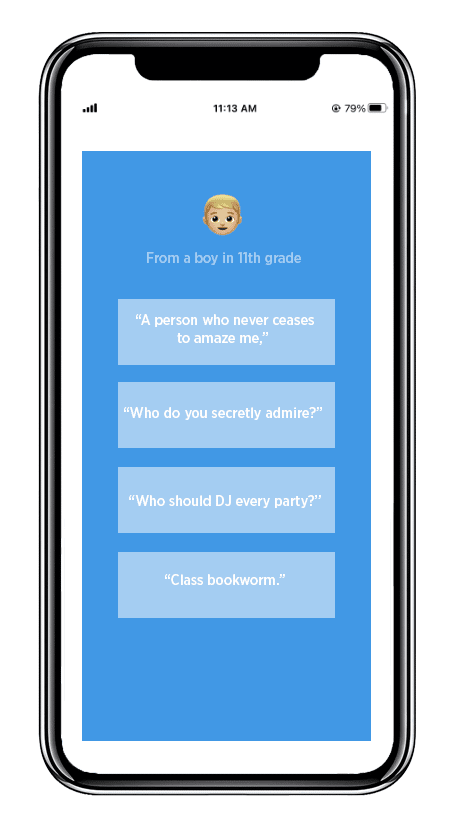
Gassed Up
When a teen receives a vote, they’ll get a notification that they’ve been “gassed up.” To “gas someone up” in this context means that they’ve won in a poll against their peers. When a child wins a poll, a flame is sent to their Gas inbox (blue if they’ve been voted for by a boy, pink for a girl, and purple for non-binary).
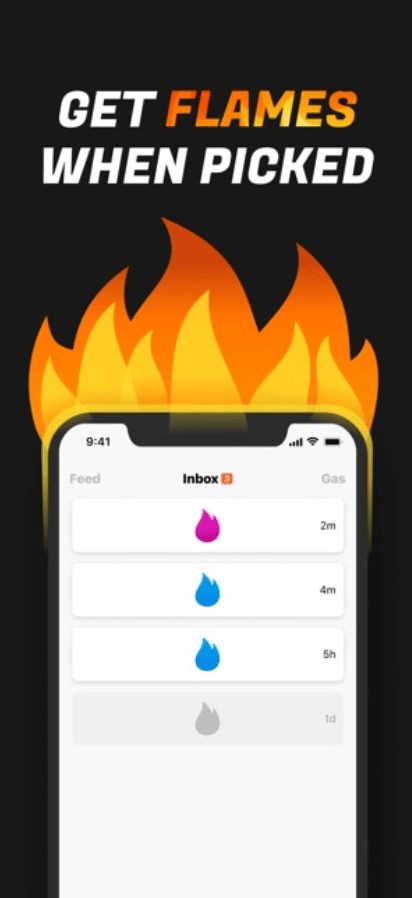
Earning coins
Only 12 polls can be answered per hour, and a single poll typically takes moments to complete; after only a few minutes on the app, the user earns coins for completing polls. Coins can be used to purchase privileges such as appearing on more polls taken by friends or even appearing on their crush’s polls. They can also be used to purchase hints about who has voted for the user in a poll.
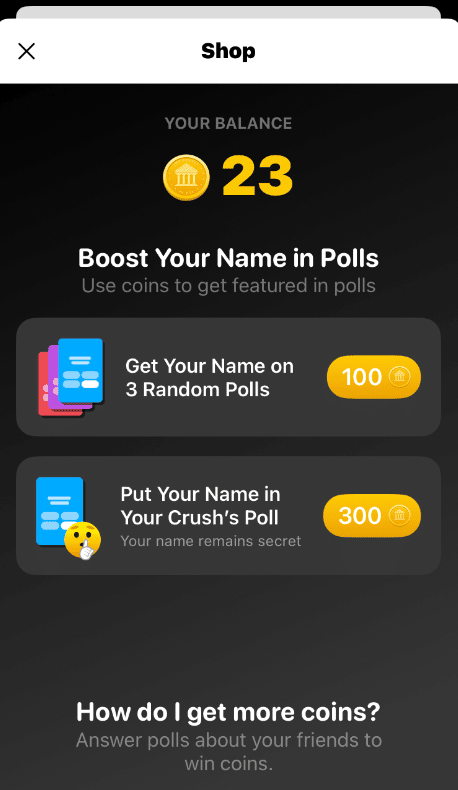
The polls in Gas
Unlike other anonymous apps where cyberbullying is common, the Gas app doesn’t currently provide an option for users to create their own polls or direct messages. Polls are made exclusively by the app and are auto-populated with names from the user’s contacts.
This feature practically removes the risk of users receiving mean messages or being part of a hurtful poll. In fact, teens even feel more inclined to be honest when interacting anonymously [1], which in this case could potentially spark kindness that would not have otherwise been given in person.
The Gas app is not totally anonymous
The Gas app openly markets anonymity as a way to promote positivity and honesty among its users; however, it’s not totally anonymous. While someone can’t know who has “gassed them up,” the profile information of any Gas app user is visible to friends and strangers in the area, regardless of whether they’re in a person’s contact list.
Profile information doesn’t have to be filled in, but if it is, that information will be public for everyone. That means that a child’s full name, the school they attend, and their grade can be openly viewed by anyone in the area who has downloaded the app.

Acquired by Discord
Discord is a forum that allows users to communicate with one another through “servers” of content they like. These servers can be joined by invitation only.
Discord is notorious for its appeal to predators, as unmoderated sexual content is often found on servers. It’s a popular hangout place for kids and predators alike.
The move to acquire the Gas app was done in an effort to appeal to “new and core audiences.” [2] While Discord has made attempts to filter inappropriate content on their main communication platform, these filters can easily be worked around by predators. Discord has made few efforts to prosecute individuals who send inappropriate content to minors. [4]
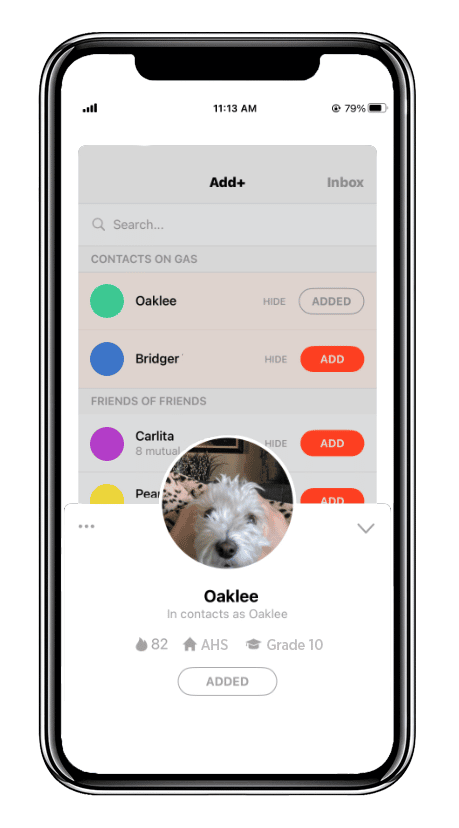
Furthermore, the Gas app offers an upgrade that provides clues about the identity of users who have “gassed” them up.
The Toxic Comparison Culture
The Gas app tracks and displays the number of times a user has received a vote, which is displayed on their profile in the form of “flames,” much like a follower or “like” count. This can encourage unhealthy comparisons among teens, who may feel they are not as liked or as valuable as peers with more flames.
Studies show a reliable connection between self-esteem and the number of “likes” on social media, and, in fact, self-esteem is often “responsive to evidence of one’s values to others, even in virtual environments.” [2]
Social validation through the app
According to a study published in 2020 by the Journal of Adolescence, connection through a social media platform can affirm and even strengthen relationships. But if a child isn’t receiving the affirmation they hope for in online interactions, they can be left feeling excluded. [3]
It’s important that we understand that our kids are living in a digital world where “flames” and “thumbs up” icons provide palpable social cues and can affect their self-esteem and mental health. [3]
When a child looks at their friends’ profiles and sees that they have fewer “flames” than their peers, their mental health and self-esteem can take a hit. Studies show that when teens base their self-worth on likes – or in this case, flames – it can “threaten fundamental needs and emotional well-being.” [3]
Polls based on looks
While some polls praise personality and friendship, others focus solely on looks and relationship status.
Gas App Poll Examples
“You wouldn’t mind practicing your kiss with them.”
“Mamma Mia, they’re hot.”
“Always doing hot girl things.”
Polls like this may leave kids feeling insecure about their looks, or maybe wishing that they got as many votes as a friend.
In fact, a study published by Frontiers in Psychology found that “students’ self-esteem consistently hinges on how attractive they perceive themselves.” [4] This app may reinforce that cycle, for better or for worse.

What Are the Risks?
Besides the problematic culture of ranking and status, there are a few other things about the Gas app to be aware of.
The Gas app has no parental controls
Because of Gas’s novelty and a user’s inability to do anything beyond polling, there are no parental controls available.
In-app purchases that release identifying information
The Gas app’s only in-app purchase (dubbed “God mode”) allows users to get information on who voted for them. [5] This identifying information is seemingly “for sale” to anyone on the app. Beyond the problematic name for this upgrade, this feature can lead kids to become unhealthily fixated on the app until they’re obsessed with finding out who “gassed them up”.
Furthermore, if a predator were lurking on the app and had purchased God mode, they could find the full name of a person who voted for them in a poll. From there, it wouldn’t be difficult to track down the person’s Instagram or Snapchat account and goad them into a potentially dangerous conversation within a different app, using the Gas poll as ammunition.
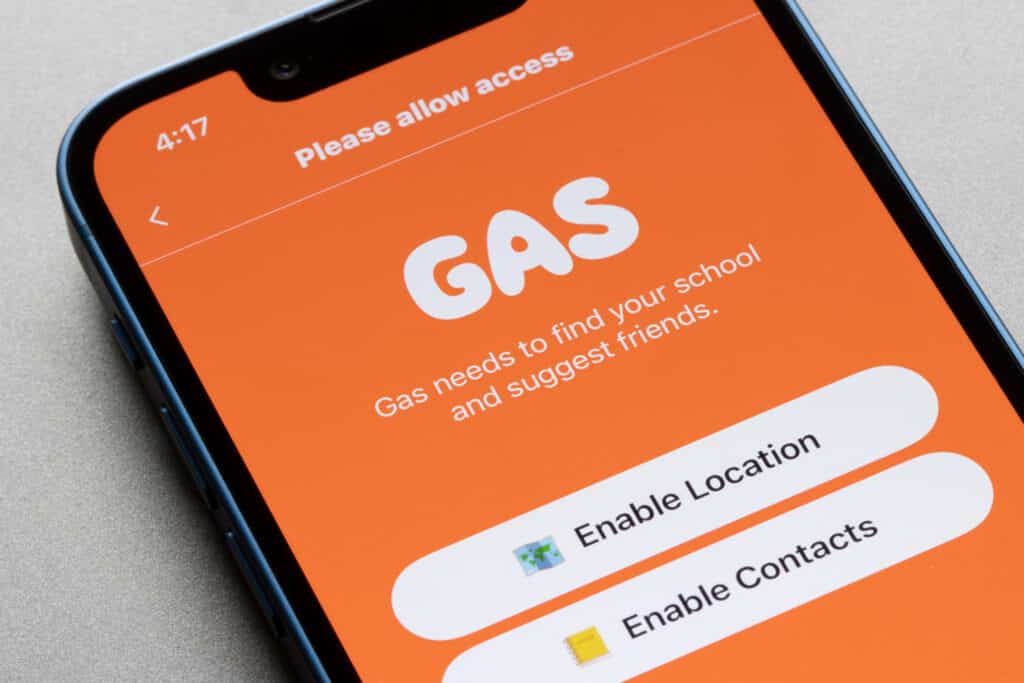
Is the Gas App Safe for Kids?
The Gas app itself appears to have fewer external risks than apps like NGL, Open, or other anonymous apps since it leaves little to no room for cyberbullying and does not offer anonymous direct messaging. However, the app can incentivize a culture of rank and status, pitting peers against peers without even protecting their names.
Location data collection
Access to location and contact information is required for the app to generate polls. In the Safety Information section, the app promises that they don’t sell or share data with third parties or track users across online services, nor do they store location data. The app even provides tips on remaining safe on the Gas app, which go so far as to recommend that users disable location access when they are not actively polling.
However, this suggestion is in the fine print and would require a teenager to be cognizant of the risk of having their location and the disclosure of their school’s initials visible.
Human trafficking controversy
Gas was launched in August of 2022 and in just three months it was #1 on the Apple app store [6], outranking TikTok. Its rapid growth was particularly shocking, as it’s had over 5.1 million downloads since its debut. [6] The Gas app grew in popularity, especially among teens, seemingly overnight.
Claims of human trafficking of Gas
Shortly after it went viral, rumors began to spread about Gas being a front for human trafficking. This led to a mass panic among parents and teens, and many users deleted the app. [7] The source of these claims has not yet been found, and the app has not regained its peak level of popularity.
The app lost 3% of its users on October 14th at the height of the sex-trafficking rumors. [9] Within days, Gas’s creator, Nikita Bier, reported on Twitter that it still boasted 30,000 hourly users. [10] Today, Gas sits at #3 in the Apple app store ranks. [11]
Is human trafficking possible on Gas?
Logistically, human trafficking would be difficult to facilitate on the Gas app because there is no way to communicate with other users on the platform directly. Most human trafficking victims are lured by agents through promises of money or fake scams on social media. [10] This is unlikely on an app that does not allow communication among users.
There are risks, however, since personal information coupled with location tracking poses a higher possibility of a teen being identified. Anyone on the app can see the full names of others – there is no opt-out option. Teens can also choose to list their school grade and the initials of the school they attend. With this information out in the open, predators might be able to find a person and directly communicate on a different app or online game.
What Can I Do To Keep My Child Safe on the “Gas” App?
Talking to kids about the foundation of their self-esteem can help them turn to healthier sources of their happiness. When we strive to carefully monitor our child’s activities, we have more influence on their self-esteem than they realize [11], even if our actions are met with eye rolls or anger.
Studies show that when making decisions, adolescents are more likely to value their parent’s advice than their peer’s advice. [12]
Teens can learn that authentic relationships with their family and friends are more important than online polls. [13] Print this out and pop it on the fridge—kids may take a look and it will open the door to meaningful conversations about their intrinsic worth.
Connecting outside of the screen
We can show kids that social media can’t bring the happiness and fulfillment that comes from authentic face-to-face interaction. [14] Talking about the relationships that matter most to us is a great place to start.
Learn more about parenting in the digital age by subscribing to our blog.











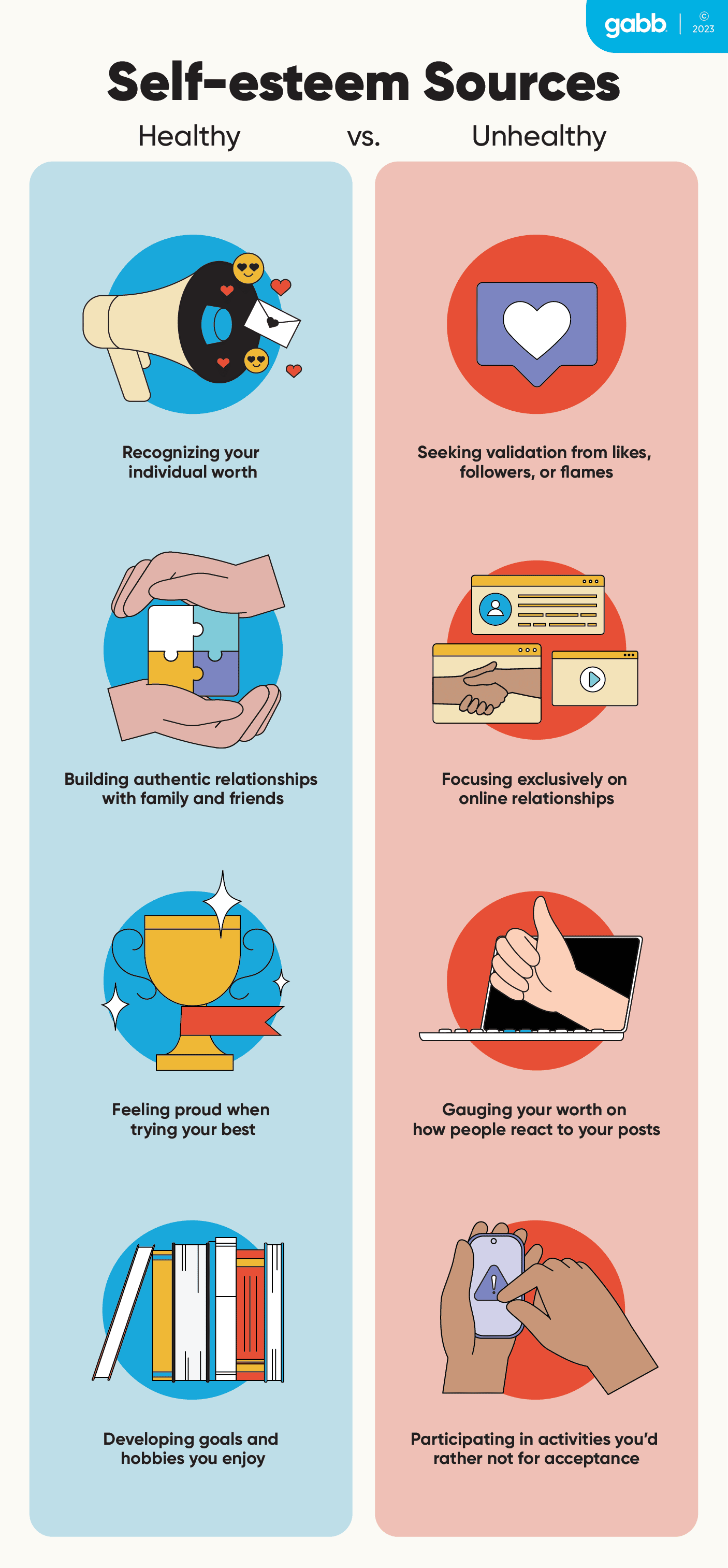
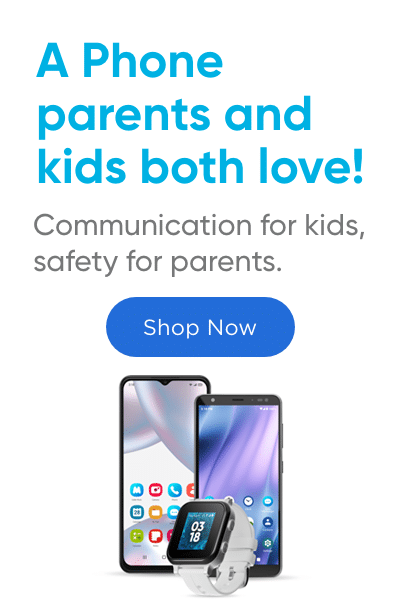
Success!
Your comment has been submitted for review! We will notify you when it has been approved and posted!
Thank you!